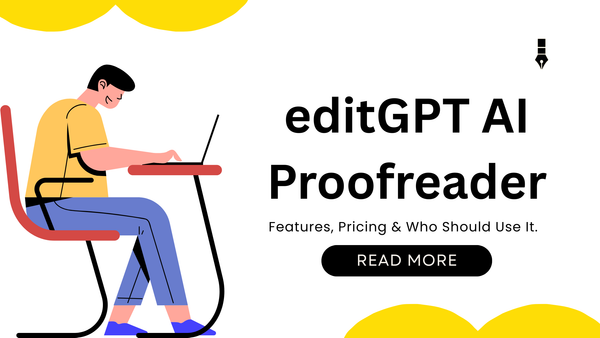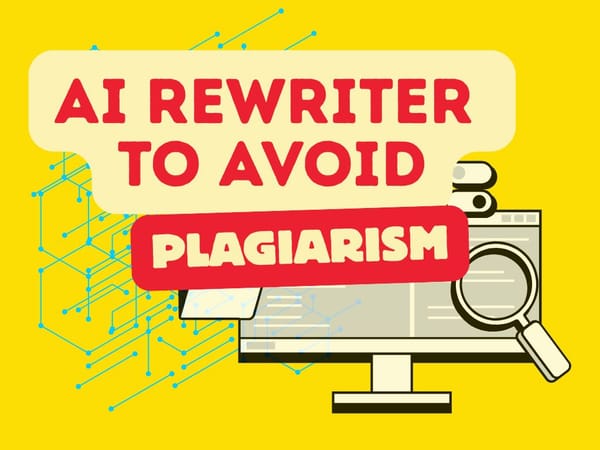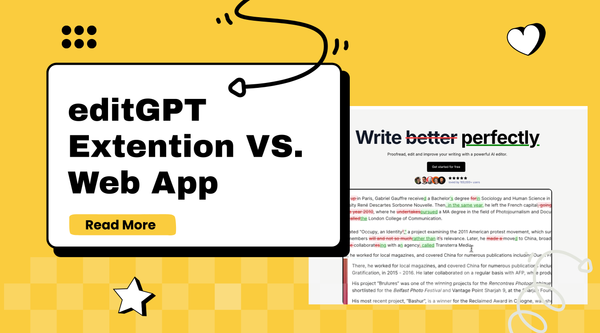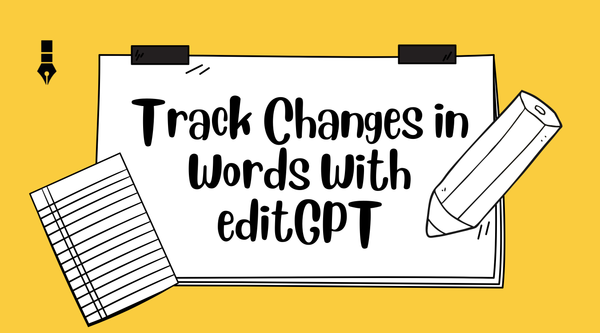3 Ways to Find an Editor (Without Breaking the Bank)
You don't have to spend a fortune for a high-quality book editing. These 3 ways will have your book proofread and edited for less.

It’s easy to find people who are willing to be your book editor for less. But finding a quality editor often feels like a luxury, thanks to its hefty price.
Add that to the fact that many writers are still building their portfolios or just writing for passion.
Editing can feel like the most overwhelming (and expensive!) part of writing.
Aside from the budget woes, we know the mental and emotional struggles that come with it, too. Getting a cheap book editor can strip away the very things that make your writing yours, your voice, your personality, your vision.
The good news?
You don’t have to drain your savings to get the polish your work deserves, especially if you’re just starting out. There are more affordable ways to get solid editing help than going the traditional route of hiring a full-time professional.
The best part?
You get to stay in charge…of both your budget and your timeline.
Using Smart Tools with a Smaller Price Tag
Two big reasons sealed the deal for us and convinced us that using a smart AI tool (make sure it’s a great tool!), like an AI proofreader and editor, is one of the most practical answers to that age-old question: how to find an editor without spending a fortune.
- Time is tight, and AI tools will give you complete control over your timeline
- Trusting an editor is tricky, and you want your visions to be understood (without being judged), so you still have perfect control over your writing.
Traditional book editors usually have their own timelines, and understandably so. Proofreading and editing a whole book is supposed to be a painstakingly meticulous process.
But that could leave you stuck waiting.
And that’s never a good thing, especially if what you’re working on is a thesis or a manuscript with a hard deadline. We don’t always have the luxury of waiting days or even weeks for feedback.
AI tools, on the other hand, work instantly anytime you need them.
If you’re looking for editors for self publishing authors, you may see mostly proofreading tools that only catch grammatical and spelling errors.
But some tools can do basically anything a book editor can do for you.
Another great thing about AI proofreading and editing tools like editGPT is that you can accept or reject their suggestions, and even fine-tune their settings and performance according to the tone, voice, and overall style that you want to achieve or retain in your writing.
What if you’re working on a very long manuscript?
AI book editing tools, such as editGPT, offer a dedicated project mode for high word counts and long-form content, so you can have your entire manuscript edited without sacrificing quality.
What are the benefits of using an AI editing tool such as editGPT?
- Far more affordable: Professional book editors charge between $2,000 to $3,000 on average, depending on the type of editing and proofreading you want or need. On the other hand, robust AI tools cost only around $12 to $50 at most, and that with a humanlike, intelligent editing already.
- Real-time feedback with no waiting: One of the biggest frustrations when exploring how to get an editor for your book is the turnaround time. Human editors can take days or weeks. AI tools, on the other hand, give you instant suggestions so you can revise and keep moving without delay.
- Available anytime, no scheduling required: AI editing tools such as editGPT are already available at your service 24/7. You can just edit whenever it works for you. No need to book someone or wait for a schedule.
- Objective and unbiased suggestions: AI proofreading tools focus on tone, clarity, and structure among many other things, while retaining and maintaining your own voice and style. They won’t impose their own preferences and visions. \
- Unlimited revisions without extra charges: Want to make changes, try a new version, or test different tones? AI tools let you rework your draft as many times as you want with no added costs. If you’re still experimenting with how to get an editor for your book, this kind of flexibility can be a real lifesaver.
- Consistent quality edits across long-form content: Tools like editGPT have features like project mode to analyze your whole manuscript while ensuring suggestions stay aligned across chapters, from beginning to end.
Fiverr Book Editor
The first path I took when I first looked to hire an editor for my book was to look at platforms like Fiverr, Upwork, or Reedsy. This is where you’ll see independent and freelance book editors for hire with varying rates.
You’ll usually see rates being offered at $10 to $20, but that’s not the whole manuscript.
A whole manuscript or a book would cost around $500 to $1,500, and it also depends on the length and complexity.
Just take note that you could end up with mismatched editing styles without clear samples and portfolios. And even if you have that, that’s still quite a risk.
You also have to remember that freelance editors usually set a limited number of revisions allowed, with extra charges if you ask beyond that.
Using an AI book editor is still better budget-wise, and you can be perfectly sure about the quality.
Nevertheless…
...hiring a freelance book editor still has its advantages, such as a hands-on collaboration. This is great if you really prefer working with a real human editor.
Peer Editing
Now, this is not for everyone. But if you’re in a circle of writers and artists, you could definitely try.
This is basically using all the resources that you have; perfect if you’re really short on budget.
Use yourself, your writing friends, critique partners, and even beta readers (also from your groups of friends) to polish your manuscript.
If you’ve been researching how to hire a book editor, you’d know how complicated and expensive the process can be.
And if you’re short on both cash and time…
…asking your colleagues and friends to check and help you edit your work for you.
Not only is it easy on the wallet, but it also gives you real, thoughtful feedback from people who genuinely want to see you improve.
They might not catch every tiny grammar hiccup, unlike a seasoned editor or a smart tool, but when it comes to your story’s flow, voice, and emotional punch, their input can be incredibly helpful.
How to get an editor for your book and what kind do you actually need?
Book editing isn’t a one-size-fits-all job. There are many aspects and facets to work on. Some focus on surface-level corrections, and some take things even further by tightening up the whole structure and flow.
Knowing what exactly you need can make a huge difference when getting the perfect book editor for your work.
- Proofreaders - they look for surface-level errors such as grammatical, spelling, and punctuation errors. This is the most basic but also the most important edit you need to have before publishing.
- Copy editors - they do in-depth editing, such as polishing your tone and flow, so every sentence reads smoothly without any inconsistency and awkwardness. \
- Developmental editors - step way back and look at the big picture consisting of your plot, pacing, character development, and how everything fits together.
A good intelligent tool (like editGPT, which is the only one I’ve used when making my grandmother’s memoir) can offer you all of these at the price of just one service.
This proved to be a great deal for me, especially when I didn’t have extra thousands of bucks to pay for a freelancer or a professional editor.
All I had to do was fine-tune editGPT according to the voice and style that I wanted to achieve (and retain), select a specific mode, and decide if the suggestions fit the vision I had for the book.
Although it’s powered by ChatGPT, editGPT is designed to focus specifically on proofreading, analyzing, and editing texts, including long-form ones.
Aside from being unbelievably affordable…
…the consistency of quality from the prologue to the last chapter was unbeatable…even by a human book editor.
It also helped with my overall workflow to add to the full suite of book editing and proofreading features that are, by the way, available in over 80 languages.
How to find an editor? FAQs
1. How much does it cost to get your book edited?
In the U.S., freelance editors typically charge between $0.02 to $0.06 per word, depending on the type of editing, may it be proofreading, copy editing, or developmental. That means a full manuscript can easily cost $1,500 to $3,000 or more. On the other hand, tools like EditGPT offer long-form editing for just a small monthly fee, often under $20, making it a budget-friendly starting point for many writers.
2. What’s the most budget-friendly way to get editing help?
Honestly, not everyone can afford a full professional edit—and that’s okay. Some writers are turning to tools like EditGPT, especially in the early stages. It’s affordable and works around your schedule, which makes it super handy if you’re editing in bits between school, work, or life in general.
3. Can I edit my book myself first?
Definitely. A lot of authors go through several self-edits before handing it off to anyone else. You can tighten up your writing, fix basic issues, and get things into shape. And if you need a bit of backup, a tool like EditGPT can help catch what you miss without taking away your voice.
4. Where do people usually find good book editors?
There are a few places you can check—freelance sites like Reedsy or Fiverr are common, and some writers connect with editors through writing communities or social media. Just make sure to look at samples of their work and read a few reviews before deciding.
5. What should I ask before working with a book editor?
Ask them how they approach editing—are they more hands-on with structure, or do they focus on grammar and flow? It's also helpful to know their turnaround time and whether they’ve worked in your genre before. These things can make a big difference in how well your collaboration goes.
Conclusion: How to get a book editor for less
The fact that most people seem to forget is that there’s no “right way” to edit your book, just the path that makes sense for where you are right now.
Whether that means teaming up with your friends or testing out an AI tool, the goal remains, and it’s making your work stronger without draining your energy and the bank.
No matter which route you choose, what matters most is that you stay in control of your work and your voice. And if you can do that on your own terms, while saving time and money. Then that’s already a win.
If you’re still on the fence…
…our top pick is to use an AI tool that you’re sure is humanlike in its intelligence. We were able to save more than half of the cost that’s supposedly for a professional editor, and we get to be in perfect control, from the style to the timeline.
Happy editing!
Recommended Reading
- Video review: This AI Text Editing Tool Is FLAWLESS!
- Best AI Proofreader Tools of 2025 (Tested for Accuracy, Speed & Tone)
- editGPT vs Grammarly vs Quillbot: Which Writing Tool is Best?
- The Best AI Proofreaders That Actually Work (Free & Paid)
- Try editGPT
- Review: Wordtune Editor vs editGPT
- Review: Grammarly vs editGPT
- Review: ProWritingAid vs editGPT
- Review: Hemingway Editor vs editGPT
- Review: editGPT vs Trinka AI: Which is the best Grammarly alternative?
- Best AI Tools for College Essay Editing in 2025
- What is the best AI Proofreader?
- Best AI Proofreader Tools of 2025 (Tested for Accuracy, Speed & Tone)



